Our 3 Locations
The Connection Between Oral Health and Heart Disease

Treating Gum Disease to Help Prevent Heart Disease
Your mouth is the gateway to your body, and its health significantly impacts your overall well-being. Peak Family Dental Care explains the connection between tooth decay and heart disease. Our dental experts provide insights into the importance of maintaining positive oral hygiene for your mouth, heart, and overall health. We’re committed to boosting your overall health through positive oral health practices. Contact us today to learn more.
The Importance of Oral Health
Many people consider oral health a matter of having a bright, white smile. Oral health goes beyond white teeth. Positive oral health plays a crucial role in your well-being and can profoundly affect your quality of life. Bad teeth can lead to heart issues, while gum disease can cause cardiovascular disease. Harmful oral health routines can lead to higher cholesterol. It’s essential to maintain a positive oral health routine.
The Mouth-Body Connection
Your mouth and body are connected in many ways. Harmful bacteria from your mouth can actually cause disease in other parts of your body. This is because your mouth is a bustling metropolis of bacteria. While most of the bacteria are harmless, they can cause an impact when a patient has bad oral health practices. The bacteria can reach levels that might lead to oral infections, such as gum disease and tooth decay. The mouth is the entry point to your digestive and respiratory tracts. Bacteria from the mouth can venture into these areas and cause disease.
Can Bad Teeth Cause Heart Problems?
Heart disease is a prevalent health concern, affecting millions of people worldwide. Multiple research studies have found a surprising connection between tooth decay and heart disease. The bacteria in your mouth don’t just stay there. When you have gum disease, the bacteria can enter your bloodstream and travel to your arteries, leading to atherosclerosis. A Centers for Disease Control and Prevention (CDC) 2012 study stated that almost one-half of US adults and 70% of US adults 65 and older have gum disease. The American Heart Association did a study that states patients with advanced gum disease may double their chance of suffering from high blood pressure. While not every person with unhealthy gums has cardiovascular disease, it’s critical to maintain positive oral health care.
Can a Tooth Infection Cause High Blood Pressure?
A tooth infection, specifically due to gum disease or periodontitis, has been found to have a correlation with high blood pressure. Although tooth infections are not the root cause of high blood pressure, they have been shown to increase the chances of being hypertensive. Research suggests that gum disease can affect blood pressure medication’s effectiveness. Poor oral hygiene has also been linked to increased blood pressure.
How Gum Disease Affects the Heart
Gum disease and heart disease may go hand-in-hand. Periodontal disease is an infection of a patient’s soft tissue surrounding the teeth. It’s a common oral health issue affecting a significant number of adults. When you have gum disease, your gums become inflamed. The inflammation can lead to the development of complications in your heart. The domino effect includes gum disease leading to inflamed gums, leading to a higher risk of heart complications.
Gum Disease Symptoms
Gum disease can have various symptoms that indicate its presence. It is important to be aware of these symptoms to seek appropriate treatment. Here are some common gum disease symptoms:
- Bleeding Gums – Gums that bleed easily, especially during brushing or flossing, could be a sign of gum disease.
- Swollen or Red Gums – Inflammation and redness of the gums may indicate the presence of gum disease.
- Receding Gums – As gum disease progresses, the gum line may start to recede, making the teeth appear longer.
- Persistent Bad Breath – Gum disease can cause chronic bad breath, even with regular oral hygiene practices.
- Loose Teeth – Advanced gum disease can lead to loose teeth and eventual tooth loss.
- Gum Abscesses – Pus-filled sacs or abscesses may form around the gums in severe cases of gum disease.
Risk Factors for Gum Disease
Some patients are simply more prone to gum disease, while some have increased risk factors due to their lifestyle. Some of the most common risk factors for gum disease include the following:
- Crooked teeth
- Chronic stress
- Poor oral hygiene
- Smoking
- Defective dental work
- Diabetes
- Hormonal changes
- Family history
Risk factors for Heart Disease
A patient with bad teeth and gums will not always suffer from heart disease. The problem is that there is no way to know until it’s too late. Some of the most common risk factors for heart disease include the following:
- Poor diet
- Chronic stress
- Gum disease
- Poor diet
- Older age
- Medical history of heart disease
- Family history of heart disease
- High blood pressure
- Diabetes
- Obesity
- High LDL cholesterol
- Smoking
Other Oral Health Issues and Heart Disease
Gum disease isn’t the only concern for your heart. Tooth loss and infections may have a connection to heart disease. Poor oral health can lead to the presence of bacteria, which can travel through your bloodstream and inflame your arteries, leading to heart disease. If you have excess plaque on the surface of your teeth, it may get underneath your gum line. This can cause excess plaque in your blood vessels, putting you at risk for a heart attack, cardiovascular disease, and stroke. Though plaque in your arteries differs from plaque on your teeth, they both have negative consequences.
Helping Prevent Heart Disease by Maintaining Oral Health
Maintaining oral health is a positive step towards lowering your risk of heart disease. Some of the best ways to maintain positive oral health include the following:
- Brush your teeth at least twice a day.
- Visit our dental team for routine dental cleanings.
- Avoid smoking.
- Use a healthy toothpaste.
- Floss daily to remove dental plaque.
- Eat a heart-healthy diet rich in fruits, vegetables, lean proteins, and healthy fats.
- Visit Peak Family Dental Care for an oral examination.
Comprehensive Periodontal Treatments
Our dental team is committed to the health of your gums. We do our best to treat gum disease in its earliest stages. Healthy gums benefit your teeth and mouth. Some of our many periodontal treatments include the following:
- Scaling & Root Planing – Scaling and root planing eliminates bacteria and plaque deposits underneath the gum line.
- At-Home Periodontal Trays – Our at-home periodontal trays can be filled with anti-inflammatory medication to use at home.
- Periodontal Surgery – When a patient suffers from advanced gum disease, we may recommend periodontal surgery to gently move the gums away from the teeth and clean out the infection.
- Laser Gum Surgery – We can perform periodontal surgery with our Solea® dental laser to reduce swelling and bleeding.
Contact Peak Family Dental Care Today
Maintaining positive oral health isn’t just for your mouth. Having excellent oral health can improve your heart and body. Our dental team will help boost your oral health and ensure you have the treatments you need to maintain positive oral health. We invite you into our friendly dental office, where we put your dental needs first. We help find the best treatments for your dental health needs. We offer dental services to enhance your health, including sleep apnea treatment, periodontal care, dental implants, laser dentistry, and more. Contact us today to schedule a dental appointment today.
